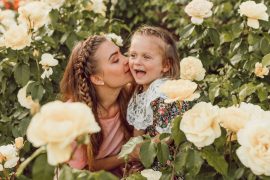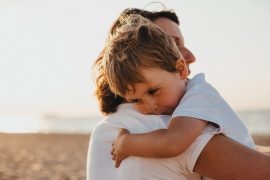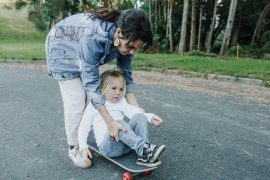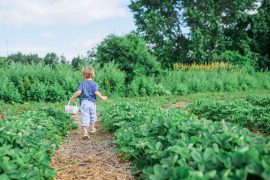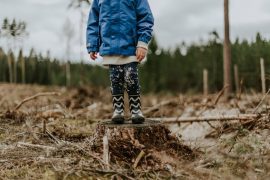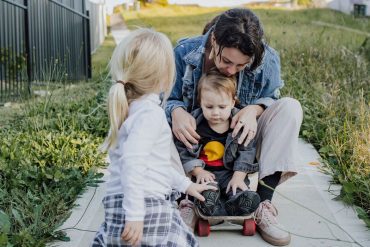How do we move past our expectations?
It is so easy to get caught up in our beliefs about what children should do or how things should be. But the truth is, it doesn’t matter. It doesn’t matter what children in general do, what most children of a certain age do, what boys or girls can do, what a sister or brother does. What matters is the individual child, in that moment.
So often we base our expectations on what a child is usually capable of, but no one is the same person from one moment to another. A child that is feeling well and rested will not behave the same way as when they are tired, hungry, or emotional.
Let go of expectations
The secret is letting every situation be what it is, instead of what we think it should be.
When I let go of expectations I began to accept my children for who they are and where they are at. When I let go of expectations I feel like I let go of an invisible barrier that had worked its way between us. When I let go of expectations I began to trust my children. When I let go of expectations I began to live in the present and began to appreciate each moment. When I let go of expectations I opened a door for them, I allowed them to listen to their own internal voice instead of mine. I allowed them to make their own decisions and judgements and removed my need for control. When I let go of expectation I realised that LOVE has no expectations.
“Truly loving another means letting go of all expectations. It means full acceptance, even celebration of another’s personhood.” – Unknown
The beauty in difference
Out of my two children, my son was the first to talk, but it took him a lot longer to master walking. My daughter has only just begun talking but she was rolling over at three months. As a teacher, I have had a child that struggled to hold a pencil, but he was the first to ride his bike without training wheels at three years. I have had children that can count to 100, but don’t have the ability or self-control to manage their emotions. And I’ve had a child who at four years couldn’t maintain focus for a short story, but could easily sit for over an hour creating a complex construction out of intricate materials.
“Everyone is a genius. But if you judge a fish by its ability to climb a tree, it will live its whole life believing that it is stupid.” – Albert Einstein
We need to see each person’s strengths rather than the aspects of them that WE feel don’t quite measure up. We have to stop expecting that each person will fit into the same box. We have to stop expecting each child to be the same, to do the same and need the same. Then we will be begin to see beauty in our differences.
Why is it we view difference as a negative or a weakness? What if it was a positive? The things that make us different from others are our greatest assets. When we “SEE” children and celebrate their strengths we teach them that uniqueness is their power.
It is important now more than ever that we empower children by allowing them to develop their own identity and personal strengths. They need to believe in themselves so they become the best possible versions of themselves.
Acceptance
In a life filled with endless expectations, let’s choose acceptance.
When we trade our expectations for acceptance the world changes instantly. Nobody is perfect, not us and not our children. To be honest, I don’t think there is such a thing. We are all perfectly imperfect and need to accept and embrace ourselves and each other for who we are.
My Dad once said to me, “Stop trying to be a peach when you’re a plum.” That has stuck with me for a long time. When we are expected to be like each other, we start trying to be like each other.
We can often look to nature for our pearls of wisdom. You can’t be a peach if you’re a plum and you can’t be a plum if you’re a peach. If a child is a peach, accept them as a peach. Allow them to embrace being a peach. We can’t change who we are and we can’t change who our children are.
Every peach was once a seed. Even as a seed, the peach already has everything inside it, everything it needs to become a tree. The seed is not an empty shell, the seed is already a peach.
We could EXPECT that if we plant the seed it would take a few years to grow into a tree. We could try to hurry the process in the hopes it will grow faster. We could tell the seed what it needs to do and how it should grow. We could even offer our opinion on what it should become. OR we could ACCEPT that if we plant the seed it will grow into a tree in its own time and in its own way.
It doesn’t matter what we say or do, the seed will become what’s inside it. A peach will become a peach, when it’s ready to become a peach. If we want it to grow up to become a pear, that’s not going to happen. If we push and pull in the hopes it will grow faster, that’s not going to happen either… But when left to grow freely, in the right conditions it will thrive.
All children are born to grow, born to learn, to live and to love. They already are everything they are capable of becoming. Acceptance doesn’t always come naturally but it is something we all long for. It is something I wish for myself and something I will not deny my children.
Acceptance is being present and appreciating what is. When we let go of who we think our children are supposed to be and embrace who they are, we empower them. Accepting our children as they are is love. When we love and accept our children completely, we fill them with love and acceptance of themselves and they learn to love and accept others.
“If a child lives with acceptance, he learns to find love in the world.” – Dorothy Nolte
Jen is a early childhood educator from New Zealand, mum of two and the founder of LovePedagogy. She is passionate about making a positive difference towards childcare and believes in a heart-centred approach to nurturing and empowering young children. You can also find her on Facebook.


